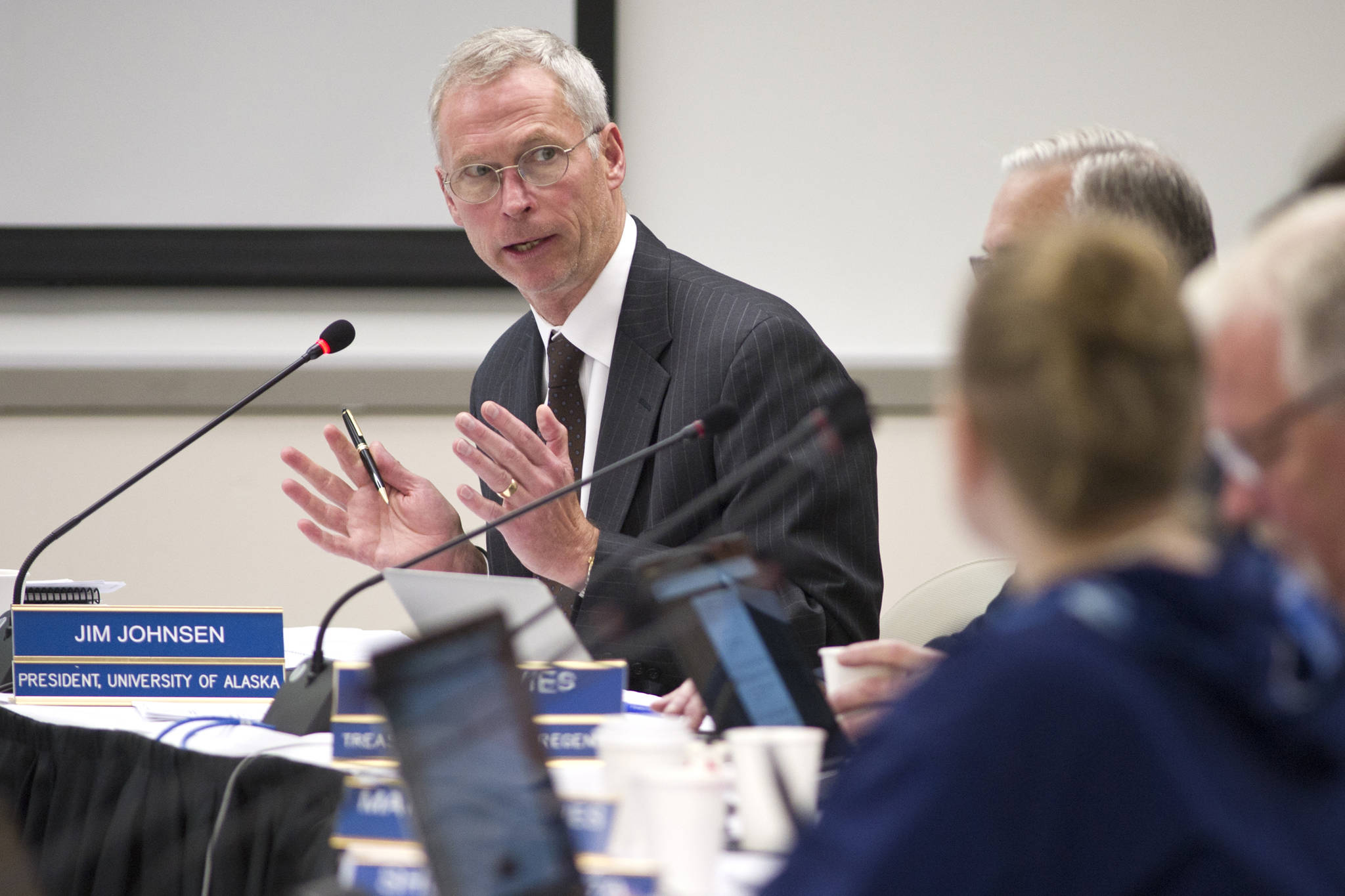The University of Alaska is striving to deal with the recent fiscal realities facing our state.
Over the years, UA has grown from three campuses to 16 including rural and community campuses, offering 424 degrees and certificates.
In Fiscal Year 2016, UA’s $350 million state general fund appropriation was twice the national average on a per-student, full-time equivalent basis.
Yet, enrollment was falling and pressure for tuition increases was mounting.
It became apparent that changes were necessary. In 2016, university administrators embarked on a program entitled Strategic Pathways — a yearlong review of its academic programs and administration — in an attempt to save money and make the university system more efficient.
[Opinion: Facts, not tales, tell story of Alaska’s ferry system]
Almost three years after the review began, UA’s challenges continue.
The University of Alaska is a large bureaucratic organization comprised of three independent schools (University of Alaska Fairbanks, University of Alaska Anchorage and University of Alaska Southeast in Juneau). Each location has its own administration, curriculum and faculty, as well as responsibility for various satellite campuses across the state.
The three independent schools each have its own fiscal and governance processes, separate academic accreditation, and its own chancellors and citizen advisory councils. Similar programs across the three schools may have different requirements, and curriculum and credits are not easily transferable.
This has subjected the university system to needless duplication in management structure and academic programs as well as “turf wars” among campuses competing for programs and budget dollars.
[Opinion: Protect University of Alaska from budget cuts]
Strategic Pathways presumably would address these issues by streamlining programs and management throughout the statewide university. This would primarily be accomplished through focus and specialization — allowing each of the three main schools to concentrate on what they did best.
The first academic program to be reviewed was the College of Education. In September 2016, the Board of Regents unanimously voted to consolidate the existing three schools of education into one administrative unit with programs delivered on all three campuses.
Traditionally, UAF has focused on research, engineering and Arctic studies, UAA has been the “economic hub” with a social, economic and health focus, and UAS specialized in e-learning and teacher education.
[Juneauites urge Senate to preserve education funding]
Despite UAS’s obvious historical and traditional connection to education programs, UA President Jim Johnsen recommended in November 2016 that the School of Education be consolidated at UAF. A month later, after an outpouring of public testimony and a pledge of a $1 million “Teacher Excellence Fund” by the community of Juneau, the recommendation was amended and unanimously reversed by the Board of Regents, placing the College of Education at UAS.
But it wasn’t until July 2018, that a dean of the new College of Education was selected and located in Juneau.
Later that year, UAA lost academic accreditation in seven major education programs and the university was faced with a major decision.
Ultimately, in light of budget issues and the uncertainly of regaining accreditation, Johnsen recommended discontinuing the impacted programs and eventually closing UAA’s entire School of Education. Affected students would need to re-enroll in one of the other two schools (UAF or UAS) to continue their studies.
[University of Alaska board votes no on education school accreditation]
Inexplicably, despite UAS’s recent designation as the center of the statewide College of Education, Johnsen recommended that six of the seven discontinued programs would be moved to UAF. This was contrary to the spirit of Strategic Pathways and undermined its goal of specialization and focus. The recommendation was approved in a narrow 6-5 vote by the Board of Regents.
It’s troublesome that a recommendation this important was made without prior consultation or discussion with the Board of Regents. According to Regent Dale Anderson from Juneau, “This was an incredible missed opportunity to continue building the College of Education at UAS.”
Needless to say, it’s also a betrayal of the faith and generosity the community of Juneau demonstrated in funding a million-dollar endowment to provide scholarships to students attending UAS for teacher preparation programs.
The University of Alaska will need to continue to make tough decisions about programs and services in light of ongoing budget constraints.
The University of Alaska and its students are better served when major management decisions promote collaboration — not rivalry — among university administrators, the Board of Regents and the three main campuses.
Win Gruening retired as the senior vice president in charge of business banking for Key Bank in 2012.
• Win Gruening retired as the senior vice president in charge of business banking for Key Bank in 2012. He was born and raised in Juneau and graduated from the U.S. Air Force Academy in 1970. He is active in community affairs as a 30-plus year member of Juneau Downtown Rotary Club and has been involved in various local and statewide organizations.

